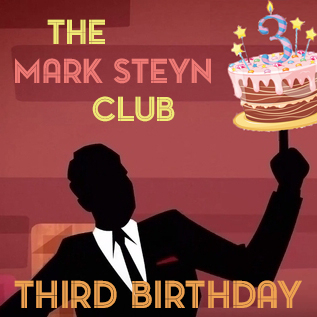 Welcome to the final installment of our encore presentation of this Tale for Our Time - The Machine Stops, written in 1909 by E M Forster and a preview of a world in which man meekly stays indoors while high-tech gizmos pump cyber-diversions into his room. Andrew writes from Alberta:
Welcome to the final installment of our encore presentation of this Tale for Our Time - The Machine Stops, written in 1909 by E M Forster and a preview of a world in which man meekly stays indoors while high-tech gizmos pump cyber-diversions into his room. Andrew writes from Alberta:
One year later, this remains my favourite Tale for Our Time. Thank you, Mark.
Well, it's certainly a tale whose time has come in this land of lockdown.
In tonight's final episode, with the actual world closed off, the Machine completes its substitution of reality:
Those who still wanted to know what the earth was like had after all only to listen to some gramophone, or to look into some cinematophote. And even the lecturers acquiesced when they found that a lecture on the sea was none the less stimulating when compiled out of other lectures that had already been delivered on the same subject. 'Beware of first-hand ideas!' exclaimed one of the most advanced of them. 'First-hand ideas do not really exist. They are but the physical impressions produced by life and fear, and on this gross foundation who could erect a philosophy? Let your ideas be second-hand, and if possible tenth-hand, for then they will be far removed from that disturbing element - direct observation. Do not learn anything about this subject of mine - the French Revolution. Learn instead what I think that Enicharmon thought Urizen thought Gutch thought Ho-Yung thought Chi-Bo-Sing thought Lafcadio Hearn thought Carlyle thought Mirabeau said about the French Revolution.
The commissars of YouTube, where doctors with "first-hand ideas" about the Covid cases they treat are now banned, would certainly recognize that world - and approve of it. Members of The Mark Steyn Club can hear me read the conclusion of The Machine Stops simply by clicking here and logging-in. Earlier episodes can be found here.
We always get questions about the theme music we choose, and this time round I picked Schoenberg and the second of his Five Pieces for Orchestra - although we also hear some of the fourth in this final part of the story. I was put in mind by this passage of Forster's, in which even the Machine's piped music begins to seize up:
Time passed, and they resented the defects no longer. The defects had not been remedied, but the human tissues in that latter day had become so subservient, that they readily adapted themselves to every caprice of the Machine. The sigh at the crises of the Brisbane symphony no longer irritated Vashti; she accepted it as part of the melody. The jarring noise, whether in the head or in the wall, was no longer resented by her friend. And so with the mouldy artificial fruit, so with the bath water that began to stink, so with the defective rhymes that the poetry machine had taken to emit. All were bitterly complained of at first, and then acquiesced in and forgotten. Things went from bad to worse unchallenged.
Defective rhymes and symphonic crises: surely Forster was on to something there - even before symphonic music was left to dozens of isolated players Skyping it in.
Tales for Our Time will return next week. Till then, our entire archive of audio adventures can be easily accessed in brand new Netflix-style tile format at our brand new home page.
I thank all those among our First Month Founding Members from May of 2017 who've decided to re-re-re-up for Year Four. It means an awful lot to me. Meanwhile, if you've yet to hear any of our Tales, you can enjoy three years' worth of audio adventures - by Conan Doyle, H G Wells, Conrad, Kafka, Dickens, Jack London, Baroness Orczy, Robert Louis Stevenson and more - by joining The Mark Steyn Club. For details on membership, see here - and, if you're seeking the perfect present for a fellow fan of classic fiction, don't forget our special Steyn Club Gift Membership. Alternatively, if you'd like a book in old-fashioned book form, over at the SteynOnline bookstore there are bargains galore among our Steynamite Special offers - and remember at checkout to enter your promo code to enjoy special member pricing on over forty products.

